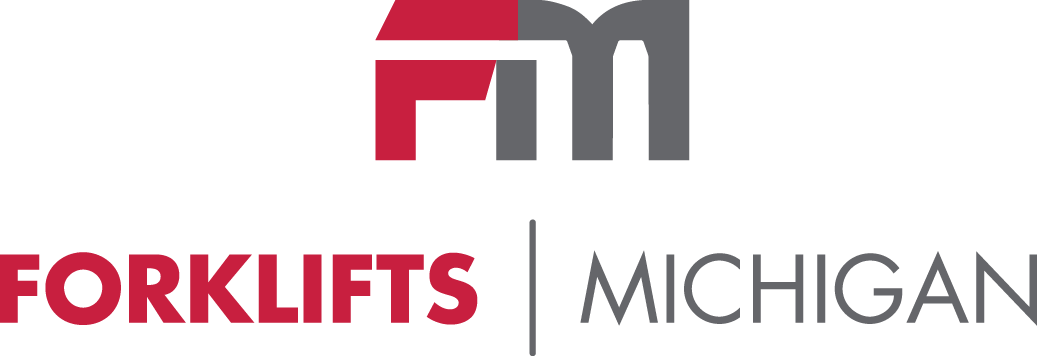The Definitive Guide to Choosing the Best Refurbished Forklifts for Your Business
In today's competitive industrial landscape, the choice of equipment can significantly impact your business's efficiency and bottom line. Among the many options available, refurbished forklifts have emerged as an increasingly popular choice for businesses seeking to maximize their operational capabilities while minimizing costs. This definitive guide will delve into the essential factors to consider when selecting the best refurbished forklifts for your specific needs. From understanding the benefits of investing in refurbished machinery to evaluating the quality and reliability of various models, we aim to provide you with the insights necessary to make an informed decision. By assessing key features, available warranties, and seller reputations, you will be equipped to enhance your fleet and ensure that your operations run smoothly. Whether you run a warehouse, manufacturing facility, or distribution center, choosing the right refurbished forklifts can lead to significant improvements in productivity and financial performance.

Key Factors to Consider When Selecting Refurbished Forklifts
When selecting refurbished forklifts for your business, there are several key factors you should consider to ensure you make the right investment. First and foremost, evaluate the condition of the forklift. Check for any physical damage, wear and tear, and inspect critical components like the engine, battery, and lifting mechanisms. A thorough refurbishment includes not only cosmetic repairs but also mechanical overhauls, so it’s vital to obtain detailed records of the refurbishing process from the supplier.
Tip: Always request a warranty on the refurbished equipment. A warranty can provide peace of mind and protect your investment, indicating the supplier's confidence in the quality of their refurbished forklifts. Additionally, look for suppliers who offer a trial period or flexible financing options to better suit your business’s needs.
Another important factor is the availability of parts and service. Before making a purchase, research whether replacement parts are easily accessible for the specific model you are considering. Forklifts that are widely used typically have better support in terms of parts availability, which can reduce downtime in the event of repairs.
Tip: Consider the forklift's features and specifications in relation to your operational requirements. Evaluate the lift capacity, height, and fuel type to ensure the machine aligns with your business needs. This can significantly enhance efficiency and productivity in your warehouse or operations.
Understanding Different Types of Refurbished Forklifts Available
When it comes to choosing refurbished forklifts, understanding the various types available is crucial for making an informed decision that aligns with your business needs. The most common types include electric, propane, and diesel forklifts, each featuring distinct advantages that cater to different operational environments. According to the Industrial Truck Association, electric forklifts are becoming increasingly popular due to their efficiency and lower operational costs, with a market growth rate projected to exceed 5% annually over the next five years.
In addition to the fuel type, it's essential to consider the load capacity and lift height of the refurbished forklifts. For instance, electric models typically excel in indoor environments, offering cleaner operations and quieter performance, whereas diesel forklifts are preferred for outdoor tasks requiring heavy lifting and rugged durability. A recent report from Material Handling Industry estimates that 60% of warehouses are adopting higher-capacity models, indicating a shift towards forklifts capable of handling diverse warehouse needs. By understanding these types and their respective benefits, businesses can better select refurbished forklifts that enhance operational efficiency and productivity.

Evaluating the Condition and Maintenance History of Forklifts
When considering refurbished forklifts for your business, evaluating their condition and maintenance history is crucial. A thorough inspection of the forklift's exterior and interior components will give you insight into its overall health. Look for signs of wear and tear, such as rust, damaged forks, and leaks in hydraulic systems. Additionally, checking the tires for wear is important, as they are essential for safe operation. A forklift’s condition directly impacts its reliability and performance, making this step essential before making a purchase.
Equally important is reviewing the maintenance history of the forklift. A well-documented service record indicates that the forklift has been properly cared for, and consistent maintenance can significantly extend its lifespan. Ensure the previous owner has conducted regular inspections, oil changes, and necessary repairs. Ask for receipts and service logs to verify that all recommended maintenance checks were performed. This information not only helps in assessing the forklift's current condition but also provides peace of mind regarding its future performance in your warehouse or business operations.
The Definitive Guide to Choosing the Best Refurbished Forklifts for Your Business - Evaluating the Condition and Maintenance History of Forklifts
| Model | Year | Hours of Use | Condition | Maintenance History | Warranty |
|---|---|---|---|---|---|
| Model A | 2018 | 1500 | Good | Full service record available | 1 year |
| Model B | 2017 | 2000 | Fair | Regular maintenance history | 6 months |
| Model C | 2019 | 500 | Excellent | Complete overhaul done | 2 years |
| Model D | 2015 | 2500 | Poor | Limited maintenance records | No warranty |
| Model E | 2020 | 300 | Like New | Maintained by authorized dealer | 3 years |
The Importance of Warranty and After-Sales Support for Refurbished Forklifts
When considering the purchase of refurbished forklifts, warranty and after-sales support are crucial components that can significantly affect your business's operational efficiency and cost management. According to a recent industry report by the Material Handling Industry Association (MHIA), nearly 30% of businesses experience unexpected downtime due to equipment failure, leading to substantial financial loss. A solid warranty can safeguard against these risks, ensuring that your investment remains reliable. A comprehensive warranty might cover major components such as the engine and transmission, providing peace of mind as your team navigates daily operations.
Moreover, after-sales support is an essential factor that should not be overlooked. A survey conducted by Modern Materials Handling revealed that 65% of companies valued responsive after-sales service over the initial cost of the equipment itself. The availability of timely assistance, parts, and maintenance services can enhance the longevity of your refurbished forklifts and optimize their performance. It's essential to partner with suppliers who are committed to providing ongoing support and resources post-purchase, enabling your business to minimize disruptions and maintain operational flow efficiently. Investing in refurbished forklifts with robust warranties and dependable support can lead to sustainable operational success and enhance your bottom line.
Cost vs. Value: Making Smart Financial Decisions in Forklift Purchases
When it comes to acquiring forklifts for your business, it’s essential to weigh the
cost against the value
each option provides. The decision to purchase refurbished forklifts can present substantial financial advantages,
particularly when considering the maintenance and potential depreciation of new ones. Refurbished forklifts often deliver
reliable performance at a fraction of the cost, enabling businesses to allocate their resources more effectively. This
method not only helps improve cash flow but can also free up funds for
other critical investments that drive growth.
Moreover, renting forklifts increasingly becomes a viable alternative to outright ownership. Renting allows businesses to
access equipment without the long-term commitment or maintenance costs associated with buying. For companies experiencing
fluctuating workload demands, this flexibility can be a game changer. Renters can scale their equipment usage up or down
based on current needs, ensuring they only pay for what they use. Taking a thoughtful approach to either purchasing
refurbished forklifts or opting for rentals can lead to smarter financial decisions, ultimately supporting the
long-term success of your business.

Related Posts
-
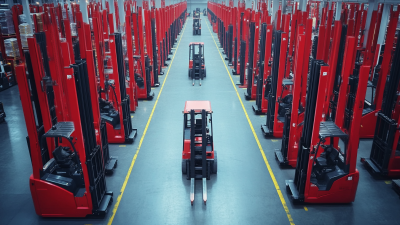
Boost Your Business at the 137th Canton Fair: Forklifts and Equipment Showcase Record-Breaking International Attendance
-
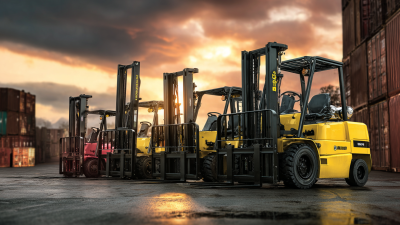
The Future of Sustainable Forklift Solutions for Global Buyers
-

2025 Innovations in Motorized Forklifts: Enhancing Efficiency and Safety for Global Industries
-
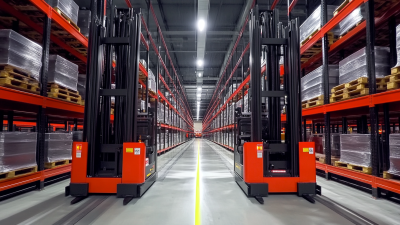
Unlocking Efficiency with Motorized Forklifts for Modern Warehousing Operations
-
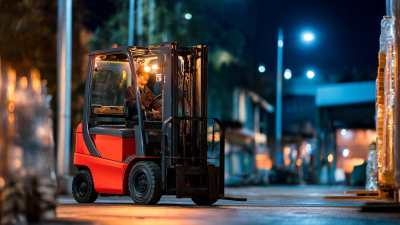
Future Innovations in Best Forklift Hire Driving the 2025 Technology Trends
-
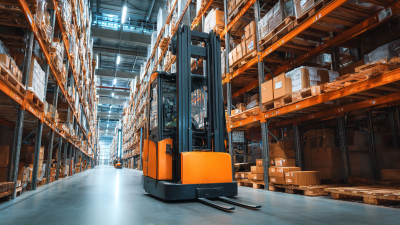
Advantages of Using the Best Battery Powered Forklift for Your Warehouse Operations

